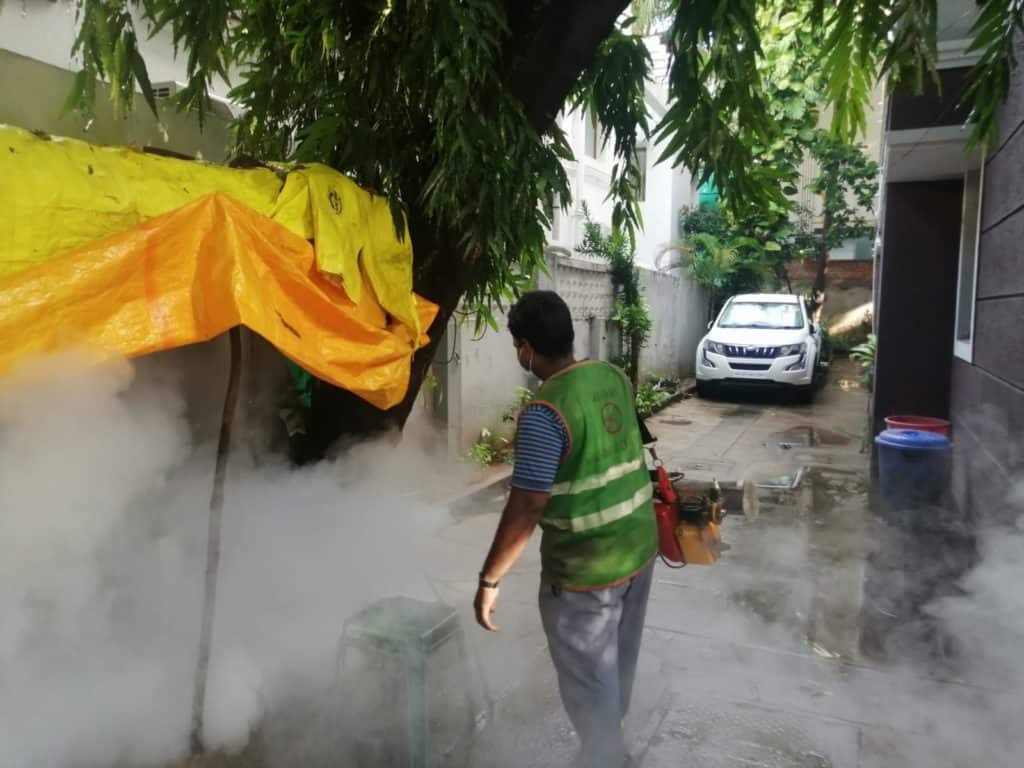Chennai sees marginal dip in water table in January
Chennai recorded normal rainfall during the northeast monsoon in 2022, while there was 74% excess rainfall in 2021. Chennai’s average groundwater level stood at a depth of 3.98 metres in January 2023. This is 0.05 metres less than the groundwater level in December 2022 and the same has fallen by 68 cm compared to last January. The slight dip in the water table is said to be the effect of prolonged dry weather and relatively less rainfall in the past year.
A daily water supply of about 1,000 million litres a day by the Chennai Metropolitan Water Supply and Sewerage Board (CMWSSB) has resulted in less extraction of groundwater. This has been reflected in Thiru Vi Ka Nagar which recorded an increase in the water table by nearly 2.75 metres this January. Five zones in north Chennai have also seen a slight rise in the groundwater level this month, says the report.
Source: The Hindu
Read more: Groundwater resources: Why central Chennai has more than other regions
Tunnelling works for Phase 2 of Metro Rail to begin soon
As part of the second phase of the Chennai Metro Rail project, tunnelling work has begun for the stretch of 1.8 kilometres from Greenways Road metro up to Adyar Junction as on February 16. Tunnelling work in Madhavaram and Aynavaram will begin in March, while the work for Chetpet and Marina Beach will begin in May and June respectively.
Two tunnel-boring machines (TBM) have been assembled at Greenways Road Metro Station. While works have been commenced with one TBM, the other machine will be set ready for use by mid-March and will drill through the soil below the Adyar riverbed.
Phase 2 of the metro rail project runs for a stretch of 118.9 km which has underground sections for 42.6 km. It will have 48 stations in total and the construction work is expected to be completed in 2026.
Source: The Times of India
New parks, a facelift for bridges and more in Singara Chennai 2.0
Work as part of Singara Chennai 2.0 is set to include new parks, playgrounds and the development of cemeteries. A sum of Rs 98.59 crore has been allocated for 42 projects which include 11 parks, 2 playgrounds, 10 seaweed parks, 2 cemeteries, 16 school complexes and conservation, revitalisation and reconstruction of the iconic Victoria Public Hall.
The bridges in Chennai are also to get a facelift with artificial lights, fountains and plants in the space under the bridges. Crematoriums will also be installed with fuel incineration technology along with ensuring other basic infrastructural work.
Source: DT Next
Greater Chennai Corporation intensifies mosquito control measures

With complaints of mosquito menace flooding the grievance redressal cell of the Greater Chennai Corporation, the civic body had intensified the mosquito control measures in the city. Maintaining that there is no raise in vector-borne diseases, the corporation officials said that high incidences of culex and aedes breeding sites have been found for the first time in the past five years. This is said to be caused by the conducive weather in Chennai.
While the local body received an average of 20 to 30 complaints per day on mosquito menace in Chennai back in 2018, the numbers touched 50 per day this year. A total of 2,108 complaints have been received between January 1 and Feb 13.
The civic body has been using 229 hand-operated fumigating machines, 8 small fumigating machines, 412 hand-operated mosquito repellent sprayers and 67 vehicle-mounted fumigating machines to control mosquitoes in all 15 zones.
Source: The Times of India
Read more: What can make Singara Chennai 2.0 better than 1.0?
Pillion riders who wear a helmet get roses and certificates in Chennai
In a bid to encourage the pillion riders in two-wheelers to wear helmets, the Greater Chennai Traffic Police (GCTP) has been giving a certificate of appreciation and roses to the pillion riders who have been found to be travelling with their helmets on. The initiative was started on February 14.
As many as 5,600 riders in Chennai received certificates of appreciation as part of the drive. The recipients have been asked to post pictures of the certificates in their social media feeds to create awareness.
Around 58 pillion riders in two-wheelers have lost their lives in road accidents since January 2022. The GCTP has intensified its vigil as part of which a total of 57,826 pillion riders have been booked so far for not wearing helmets.
Source: The Times of India
[Compiled by Shobana Radhakrishnan]